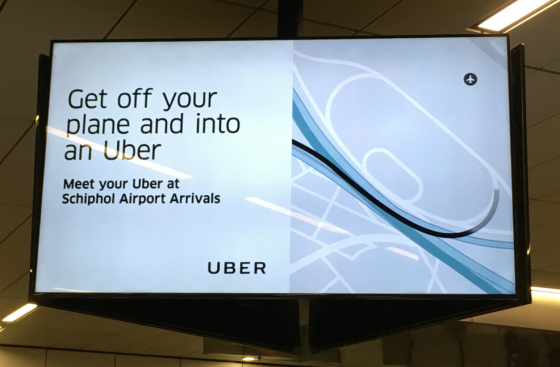Ministers urged to act on Uber’s 50-company Dutch tax shelter


The Dutch government should thoroughly investigate the network of 50 or so Uber shell companies registered in the Netherlands because of the implications for the global economy, according to an Australian NGO which investigated the company’s tax set-up.
Taxi and meal delivery giant Uber shifted $5.8bn through 50 or so shell companies in the Netherlands in 2019 after creating a massive tax shelter, according to research by Australia based tax research institute Cictar.
The research was carried out on behalf of Dutch trade union federation FNV, which has been campaigning for more rights for both Uber’s freelance taxi drivers and delivery workers.
The shelter was created in 2019 when Uber transferred its intellectual property rights from Bermuda to the Netherlands. The sale was financed with a $16bn loan from an Uber subsidiary in Singapore which, in turn, is the immediate parent company of the Dutch shell company that controls Uber’s global empire.
Yet despite reaping a global operating revenue of over $5.8bn in 2019, the Dutch shell company reported a loss of $4.6bn. And Cictar says accrued interest on the Singapore loan will further reduce the company’s taxable income in the Netherlands by $1bn a year for the next 20 years.
Revenue generated by Uber’s global ride-sharing and meal delivery services, excluding the US and China, accumulates in the Dutch subsidiaries which own the technology – or intellectual property rights – behind the Uber apps. This means that profits generated through the apps are earned in the Netherlands.
In addition, Cictar said, Uber’s Dutch subsidiaries manage the large global payments from consumers and remittance flows to Uber workers. ‘Uber’s business model is being challenged in many jurisdictions. However, it has largely been able to avoid being classified as a transport company, avoid acknowledging workers as employees and avoid regulation for banking operations,’ the report said.
Tax reforms
Ultimately, we need global tax reforms so that Uber and other multinationals are taxed on global profits and tax revenues are distributed based on where profits are genuinely earned, Cictar senior analyst Jason Ward told DutchNews.nl.
‘Given that Uber has concocted an artificial “sale” of its intellectual property from Bermuda to the Netherlands in order to create this massive global tax shelter, the Dutch government has a responsibility to thoroughly investigate the legitimacy of this series of transactions which have global implications,’ he said.
‘Additionally, the Dutch government – given the global scale of banking transactions through the Netherlands – should consider whether Uber should be regulated as a financial institution. Uber’s only banking license is issued by the Dutch central bank.’
Uber did not respond to DutchNews.nl’s requests for comment.
Thank you for donating to DutchNews.nl.
We could not provide the Dutch News service, and keep it free of charge, without the generous support of our readers. Your donations allow us to report on issues you tell us matter, and provide you with a summary of the most important Dutch news each day.
Make a donation